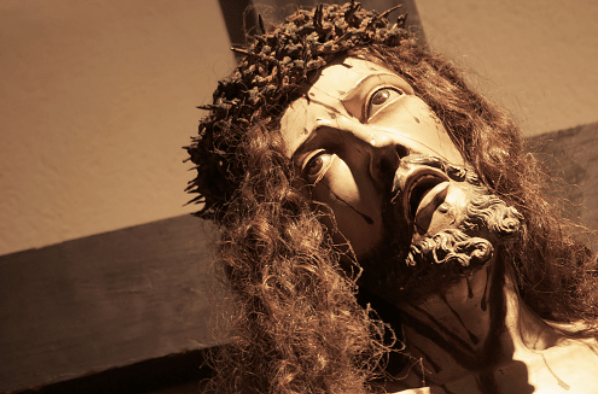On the neighborhood-focused social media platform NextDoor, a distraught woman posted this today, in the hours leading up to Independence Day celebrations…
I have PTSD and I am *so* sick and tired of being triggered by people shooting off fireworks at all hours of the night all the time. If it is you or your neighbor knock it off, please. There is literally no reason. With the disintegration of our rights and the nosedive we’re taking into christofascism you can’t even use being patriotic as an excuse (and it’s not the 4th even if that was your excuse). When I don’t have the kids I have been taking walks to try to find the people responsible to have a conversation. But I would much rather we all agree to be grownups and this stops now. Thanks.
The sudden, explosive noises we all associate with 4th-of-July celebrations make it the worst time of the year for pets—but that’s equally true for people who’ve experienced trauma. This woman is describing, in sharp detail, a reality that feels like waves of assault. My own daughter survived a school shooting, and she is still sensitive to sudden, loud noises six years later. But the knife-edge of this woman’s complaint is buried in the middle—“the nosedive we’re taking into christofascism”.

I read a lot, and am fully engaged with what’s happening in our culture, but I’ve never seen this word before. So I looked it up: “Christofascism is a far-right political ideology that denotes the intersection between fascism and Christianity, encompassing the fascistic, totalitarian, and imperialistic aspects of the Christian Church.” Wow… So this is where we have come to. The Church that has been, and still will be, a refuge and a source of hope for many is simultaneously a threat and a horror to many. This is a bitter truth to swallow, especially for those of us who are called by God to represent that Church in a vocational way.
It’s tempting, in a knee-jerk way, to push back on “Christofascism” as an over-reaction, to mount a counter-offensive to this dire description with a litany of the church’s “protests of beauty” that always live below the media radar. But as followers of Jesus we are invited by Him to live out what Good to Great author Jim Collins calls The Stockdale Paradox: “You must never confuse faith that you will prevail in the end—which you can never afford to lose—with the discipline to confront the most brutal facts of your current reality, whatever they might be.” To love and serve Jesus means we first accept the “brutal facts of our current reality,” and that means we must accept that, to so many, those who serve in the Church vocationally (paid or unpaid) have become the face of the enemy…
Fortunately, this is familiar territory for Jesus—loving our enemies is at the core of our calling…
In his hometown synagogue, Jesus stands to read from “the scroll of Isaiah” on Sabbath day. During the time of the Babylonian exile, handwritten copies of the Torah and the Prophets were systematically destroyed. To preserve them, the scrolls were divided among the families in Nazareth. Isaiah 61 was long ago “entrusted” to Jesus’ family—remarkable, because the focal point of this section of Scripture is the mission of the Messiah: “The Spirit of the Lord is upon me, for he has anointed me to bring Good News to the poor. He has sent me to proclaim that captives will be released, that the blind will see, that the oppressed will be set free, and that the time of the Lord’s favor has come.”
Jesus rolls up the scroll, hands it to the synagogue attendant, and sits (rather melodramatically) in “the seat of Moses.” Then he proclaims, “The Scripture you’ve just heard has been fulfilled this very day!” This is shocking to the Sabbath crowd because no one but the coming Messiah is allowed to sit in the seat of Moses—it has been empty for centuries. Jesus intends this to be a defining moment, highlighted by what he doesn’tread in the scroll. He plants a period where Isaiah had a comma, excising this: “…and with it, the day of God’s anger against their enemies.” Jesus is clearly spotlighting a tectonic shift in our focus—He wants us to target “the enemy within us,” not the enemy without. I mean, we respond to those who see us as enemies (however unfair that seems) with humility, remorse, and counter-cultural kindness.
Early in His ministry, Jesus attracts a huge crowd, so he climbs the side of a mountain and sits down to teach (Matthew 5–7). Out of his mouth comes “shock and awe”—a blast of what he stands for, and what the culture of the kingdom of God is like.
- Anger is pretty much the same as murder.
- Don’t make vows or promises… none.
- Don’t take revenge, and give your enemy more than asked for.
- Actually, love your enemies.
- Don’t pray or fast or do anything spiritual to be praised.
- Forgive, or you won’t be forgiven.
Here, Jesus is revealing the way he values things. To follow Him means we abide in His presence so regularly, so deeply, that His values infect and overtake our values. We cannot “work up” this kind of transformational goodness—we can only attach ourselves to its source. Our call in the face of Christofascism is to move toward Jesus, and others, through a veil of tears…
Rick Lawrence is Executive Director of Vibrant Faith. His new book is The Suicide Solution. He’s general editor of the Jesus-Centered Bible, and author of 40 books, including The Jesus-Centered Life and the devotional Jesus-Centered Daily. He hosts the podcast Paying Ridiculous Attention to Jesus https://soundcloud.com/pay-attention-to-jesus
